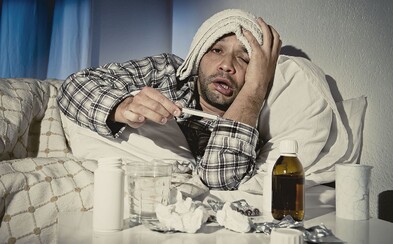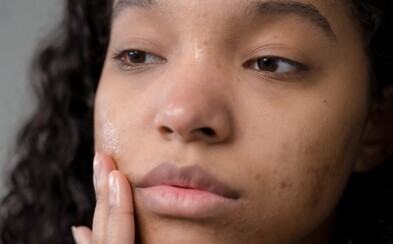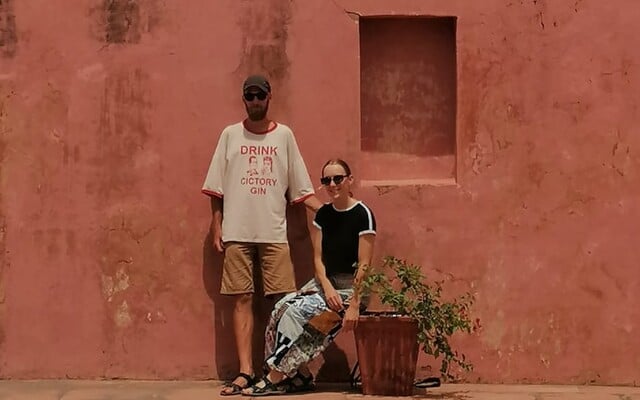 Ozempic can cause vision loss. A new study has shown a link between the drug and eye problems
Ozempic can cause vision loss. A new study has shown a link between the drug and eye problems
Ozempic can cause vision loss. A new study has shown a link between the drug and eye problems
Ozempic can cause vision loss. A new study has shown a link between the drug and eye problems
Young women told us about toxic relationships: He used to have unpredictable tantrums, I believed it was my fault
The psychologist explained the warning signs of a toxic relationship. When to leave and how to overcome a breakup?
If problems persis, please contact administrator.
"Although the term 'toxic relationship' is not, at least for now, a scientific term, it translates to a poisonous relationship. Figuratively, it simply means harmful. That is, a romantic relationship that hurts. It can hurt one-way, so there is a clear imbalance of power, where one person is psychologically abused or hurt, or two-way, where both people in the relationship are hurting each other, just in different areas or in different ways. It brings to mind the image of two poisonous snakes biting into each other," explains psychologist Matej Hrabovský.
Daniela, who was stuck in a toxic relationship and was eventually talked out of it by her friends and her partner's parents, shared her experience with us. "His lifestyle was quite different from mine, an orderly one. He studied and worked, but because of his work he was often around people, at parties, and of course he had a drink here and there. It was just how different we were that made me very happy at the time," he recalls of the early days.
He kept his distance, as if he didn't really want to see me, just used me for sex and then ignored me again.
The adventurous summer of fun and travel came to an end and the couple returned to their normal lives, which did not continue idyllically. Her boyfriend became aggressive and alternated his outbursts of anger with manipulative apologies. Daniela, however, ignored this red flag and continued the relationship.
Do you enjoy our work? Join the Refresher+ club. It's also thanks to your support that we are able to bring you quality articles. In addition to the many benefits that await you, you'll get unlimited access to premium content.
- Take a test to help you evaluate the health of your relationship.
- How Daniela's dude's parents reacted to their son's violent behavior.
- Why a toxic relationship had a positive effect on Liliana.
- How to identify a toxic relationship.
- What to do if you discover you are in a toxic relationship.
- Why it's not a good idea to stay in a buddy relationship with a toxic partner.
- How to overcome a difficult breakup.
"He kept his distance, as if he didn't really want to see me, just used me for sex and then ignored me again. I was constantly finding fault with myself. He had unpredictable outbursts of anger, humiliated me, manipulated me. And I still didn't get it because... he was just good at turning it around and I honestly believed I was the bad guy," she admits years later.
When identifying a toxic relationship, the expert says we need to notice a pattern of behavior that negatively impacts psychological well-being, emotional survival, relationships with other people, as well as overall health.
Key signs include, for example, gaslighting, or questioning a partner's reality, memory or perception and accusing them of being overly sensitive, which can lead to questioning and loss of self-esteem in the victim.
He assaulted her in her parents' home
"During an exchange of ideas, he assaulted me in the hallway of his parents' house. It was only when his parents told me to get away from him, that I deserved someone who would respect me, that I felt a little brighter," Daniela describes the moment when she realised something was wrong. Her aggressive partner had caused damage to the retina in her eye, and as a result she still sees a spot in front of her eye.
Even after this incident, Daniela's partner did not give up. He wrote to her, brought her flowers, apologised. His efforts ended after two months. Daniela was then helped by the closeness of other people who reassured her that the relationship she was in was not healthy.
I remember being surprised that there was actually interest in me among men. Because after my relationship with him, I felt like no one would ever want me again.
It was hard to leave
"When you're watching a toxic relationship from the outside, and there doesn't even have to be physical violence, the psychological can often be much worse, you're saying to yourself how can this person stay in it when they're obviously suffering and hurting. But then you find yourself alone in that relationship, you don't even know how, and it's incredibly hard to leave it because you believe it will get better (because of those extreme moments of euphoria) and you don't realise it at all," Daniela explains the situation that many people find themselves in.
However, for her, only the help of professionals was the definitive solution. "I started going to therapy and eventually started taking antidepressants - that's how much the relationship destroyed me. I was at a point where I really felt I was going crazy and needed help, relief from that animalistic feeling.
It took her over four years to heal from the relationship, during which time she found herself in several unsuccessful situations. "I remember being surprised that there was actually interest in me among men. Because after my relationship with him, I felt like no one would ever want me again. I think it's only now that I've processed everything and I'm totally ready for something new," Daniela says, adding that they met about two years ago and he apologised to her for his behaviour.
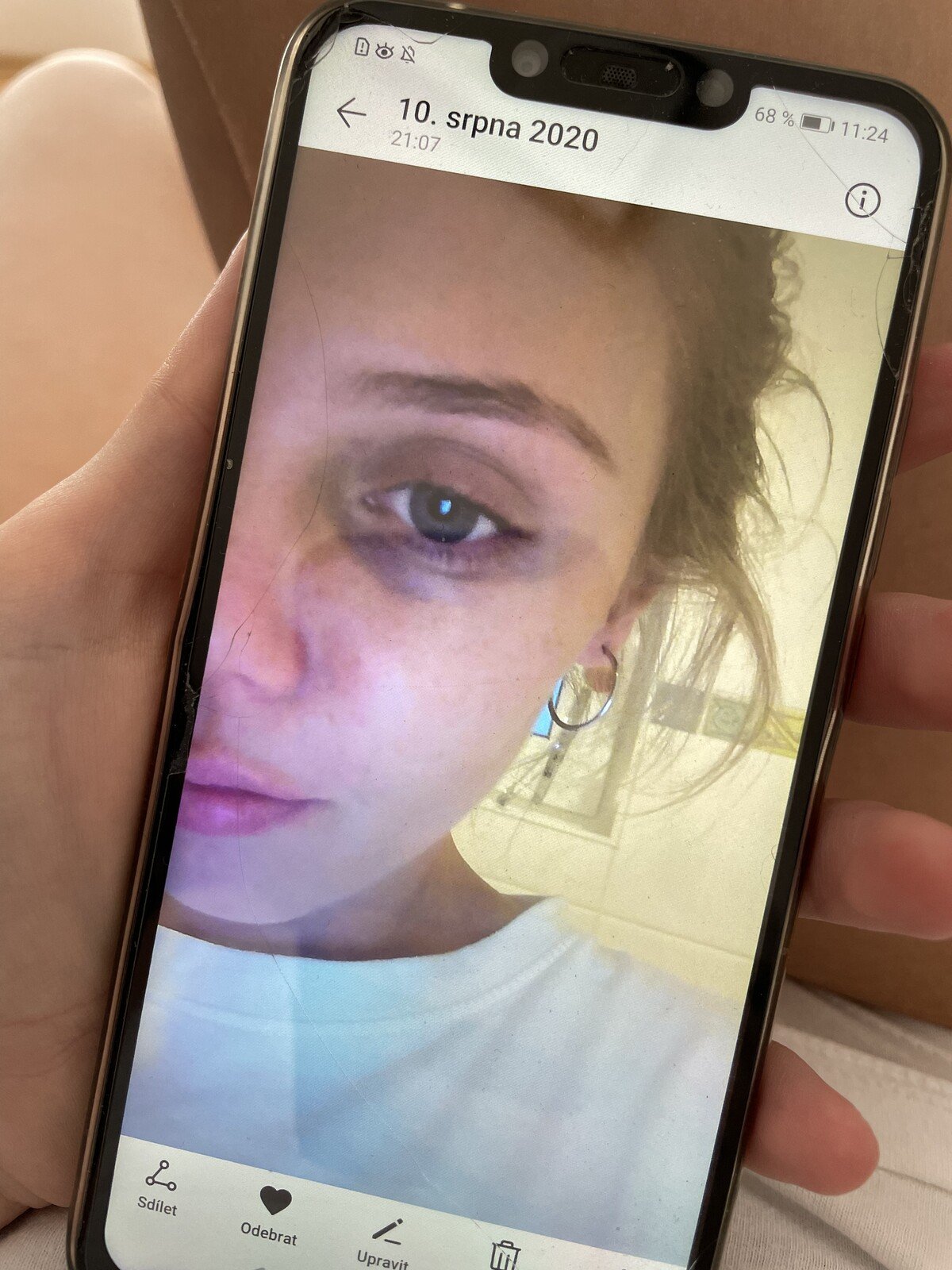
Liliana's dude started sending hate-filled messages
Liliana, whose relationship was initially amazing, experienced something similar, she says. However, the situation changed and she started receiving vulgar messages from her boyfriend. "We started arguing and he started sending me hate messages. 'I'm sorry I met you. You're a selfish cunt. You're a violent manipulator. You f*cked up my whole life and you f*cked up everything,'" Liliana is quoted as saying, who nevertheless thought it was normal.
I only realised that it was a toxic relationship when he raised his hands at me, and only because I got a new follow from a boy.
He always came with an apology after an argument, then later he started blocking her on social media and insulting her more and more, which later resulted in a physical assault. "I only realised that it was a toxic relationship when he raised his hands at me and only because I got a new follow from a boy," says the young girl.
A toxic relationship can involve excessive control, where one partner determines what the other can do and who they can see. Humiliation through criticism or ridicule is also common and undermines self-esteem. The toxic partner often blames the other for everything and portrays the other as oversensitive. "That is, hurtful comments to which, when the other responds defensively, the person in question still makes him or her out to be a boring person 'who doesn't know what fun is'," explains psychologist Matej Hrabovský.
Another sign is irrational jealousy, a feeling of "owning" the partner and absurd accusations of infidelity, while he himself does whatever he wants. "Compulsive thoughts about the partner's infidelity and the creation of absurd scenarios that one confidently presents to the partner can also be related to this," says the psychologist.
According to Liliana, this relationship has had a great impact on her life and has even shifted it for the better. "I have sorted out my priorities, goals and dreams. It has made me a better person who works on myself and spends time with myself. I haven't had a relationship since but I won't let a boyfriend in so soon because I'm happy with myself and for now I don't miss belonging to someone or spending time with someone in a relationship," she concludes.

You don't have to look for toxicity behind every disagreement
It's important to realize that relationships are never perfect. "If someone has one, let them start writing a book about it," says the expert. So behind every disagreement or inappropriate or overreaction there is no need to automatically look for toxicity.
"But when it's a stable pattern and a person has suffered in a relationship for a long time, it's important to consider multiple aspects. In a healthy relationship, first and foremost, both people should feel safe and accepted," the expert clarifies. You have to be careful when you have a constant feeling of insecurity, when you have to be careful whether you can be yourself.
In a healthy relationship, partners do not insult and respect each other as equal human beings. "Does your partner often let you know that he or she is more like you? That his or her needs are more important and opinions more important? That's not what respect looks like," warns the expert.
A signal that the relationship is probably not going well is isolation from family or friends, which is also a common effect of manipulation, gaslighting, or jealousy. For example, think about whether you were more confident, calm and happy in the past (before the relationship). This too can be a sign that the relationship you are in is toxic.
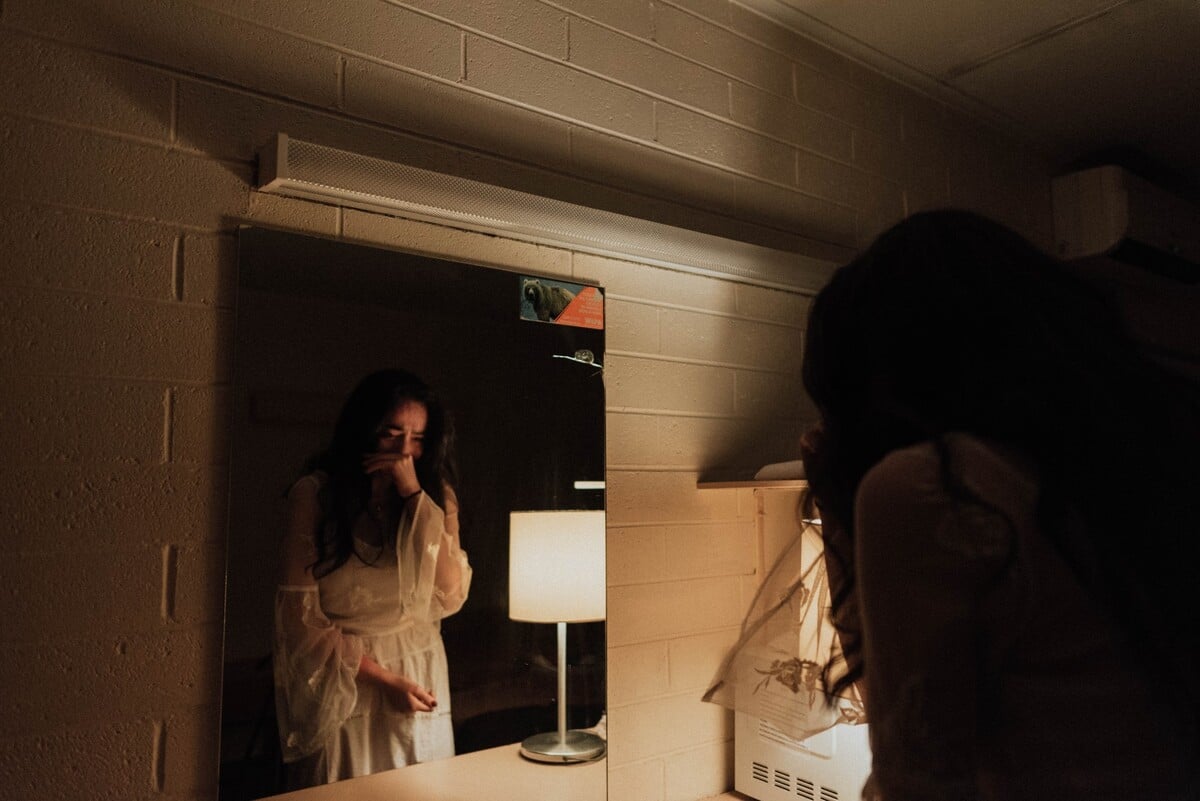
Weight gain or weight loss
You shouldn't take physical changes lightly either. According to a psychologist, it is often the case that victims in toxic relationships experience weight gain or, conversely, significant weight loss. They are also more likely to turn to addictions, such as alcohol, because they naively believe that this will get rid of their problems.
TEST: ARE YOU IN A TOXIC RELATIONSHIP?
Toxic relationships can take many forms - from constant manipulation to emotional abuse. If you have doubts about the health of your relationship, take this test. Answer the questions honestly "YES" or "NO" and evaluate your results at the end.
- Do you often feel tired, exhausted or stressed in your relationship?
- Do you feel that you have to constantly adapt to your partner in order to avoid conflicts?
- Do you often feel guilty about things that are not your fault?
- Does your partner criticize you often, even for small things?
- Do you feel that your opinions, feelings or needs are not respected?
- Have you experienced silent days or being ignored by your partner as a form of punishment?
- Are you afraid to express your opinion because you fear a negative reaction from your partner?
- Is your partner controlling - for example, watching where you are, who you are seeing or checking your messages?
- Do you feel that your relationship is not improving even though you are trying to resolve the situation?
- Does your partner discourage you from seeing friends or family?
- Do you often feel lonely even though you are in a relationship?
- Do you feel like you're on an emotional roller coaster - one minute everything is great and the next it's bad?
- Do you worry about how your partner will react when you do something he/she doesn't like?
- Do you feel like you have to constantly prove your worth in the relationship?
- Does your spouse blame you for things you don't do or distort reality in ways that make you feel confused?
EVALUATION:
0 - 3 answers YES: You're probably in a healthy relationship, but if something is bothering you, it's good to talk about it.
4 - 7 answers YES: There may be toxic elements in the relationship. Think about what you are uncomfortable with and consider talking to your spouse or a professional.
8 or more YES: Your relationship shows strong signs of toxicity. Consider whether it is causing you more pain than joy and whether it is safe to continue.
Remember that you deserve a relationship in which you feel respected and loved. If you realize you are in a toxic relationship, don't be afraid to seek help or support from loved ones or professionals.
What are your options?
What is the first step a victim should take after finding out they are in a toxic relationship. "This may sound harsh and radical, but as a first step, at the very least, he or she should consider breaking up. Life doesn't last forever, every minute is precious, and wasting time in suffering voluntarily is really pointless," the expert advises.
Leaving a dysfunctional relationship is complicated if there are children, finances, sincere love or dependence on the other person. According to the expert, rescue is not impossible, but only a sincere effort by both parties and clear boundary setting can fix a toxic relationship.
"Such change is difficult, the other party finds such boundary-setting efforts uncomfortable and the reaction is usually aggressive and dramatic. Paradoxically, it is only the person who wants to change the toxic relationship who may be labelled by the other party as the toxic one - a frequent criticism is then
"You've changed," explains Matej Hrabovský.

If you've decided that you don't want to continue the relationship, the best solution is to end it. In that case, it's important to realise the importance of your decision and believe in it. It's not enough to just decide to leave. It needs to be done with the conviction that you deserve a healthy and respectful relationship.
Sometimes love is not enough. If you are suffering in the long term, you can love from a distance, without a relationship. Remind yourself why you chose to leave and keep that in mind at all times. Be prepared for natural emotions such as fear or sadness. They don't mean you made the wrong decision.
According to the psychologist, it is important not to be alone in this. Create a support network of people who want to help you. A partner in a toxic relationship may manipulate you and try to keep you down - with blame or promises. That's when it's good to have someone around to remind you of reality, not just a friend who always agrees with you and will support you no matter what.
In the process of leaving and recovering from a toxic relationship, you need to accept the new situation. "You are no longer in a relationship and so a new situation is created where new boundaries apply. Ditch the 'we're going to stay friends'. At least for a few years. In order to recover from a toxic relationship, you need to keep other people and especially yourself in the spotlight, certainly not the ex. Put your own needs first in life and develop self-compassion - be the best friend you need to be," advises the expert.
Recovery, he says, comes gradually, but it always comes eventually. It is advisable to focus on your needs, dreams and desires. If this is difficult, seeking help from a mental health professional may be a good solution. A psychologist points out that man has a superpower to repeat his mistakes.
It's sessions with a professional that are a kind of "recovery catalyst" and can help you create a new life for yourself without falling into another toxic relationship. Therapy makes it easier to notice past mistakes, name them, and walk into the future a little wiser.
- The free 24-hour Nezábudka helpline: 0800 800 566
- Mental Health League Online Advice Centre
- National free 24-hour helpline for women experiencing violence: 0800 212 212
- Women's Alliance of Slovakia 24-hour crisis line: 0903 519 550, alianciazien@alianciazien.sk
- The Directory of the Coordination and Methodology Centre contains contacts for each region.
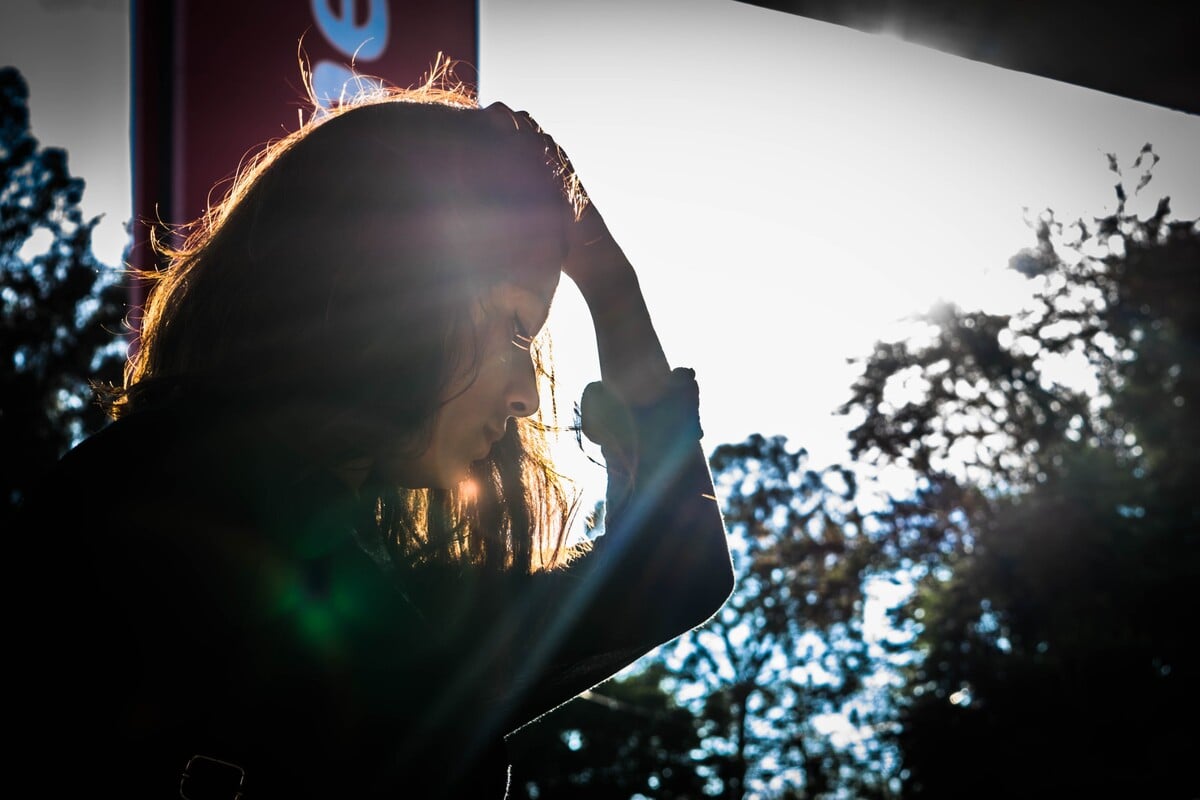
If problems persis, please contact administrator.



